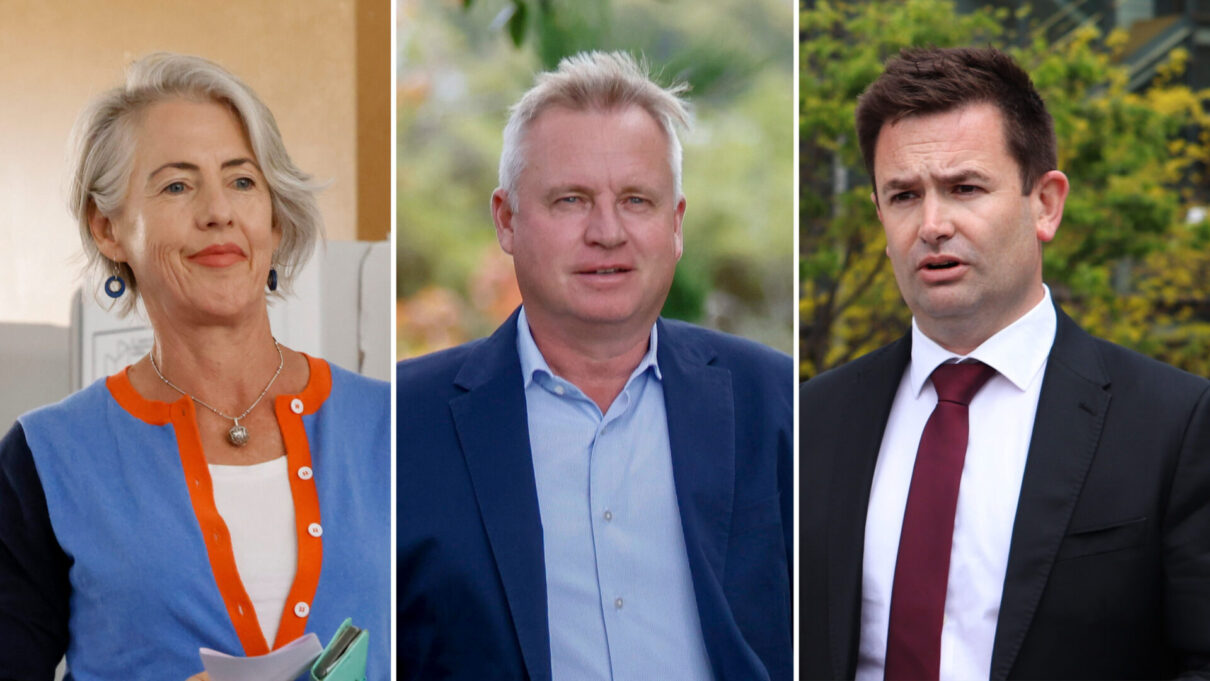The system is working, but big parties must heed voters and engage with minor parties

Tasmanians keep voting for a power-sharing parliament over the wishes of the major parties.
The parliament has lost confidence in Liberal Premier Jeremy Rockliff, and so next month Tasmanians will go to the polls for the second time since March last year.
This is the system working as intended.
In the Westminster democracy Australia inherits from the United Kingdom, the government of the day and its ministers are responsible to parliament.
They answer to the representatives of the people.
The awesome powers Australians vest in their governments – unlimited by a bill of rights and granted without a direct popular vote – are supervised by the democratically elected parliament.
That said, Tasmanians are entitled to feel surprised that this term of power-sharing government ended so abruptly.
Most power-sharing parliaments are stable and see out the full term, according to the Australia Institute’s research.
NSW has its third power-sharing government in a row, as Labor governs with three independents in the Minns government, which followed the Perrottet and Berejiklian Coalition
governments without incident.
In the ACT, Labor and the Greens have collaborated for over 15 years – even as the details of the arrangement have changed.
The Gillard Labor government was very productive either in spite or because of power-sharing, making more laws than other governments, including ground-breaking reform like the NDIS, clean energy future package, cigarette plain packaging and expanding Medicare to dental for children.
Even self-described “bulldozer” Prime Minister Scott Morrison saw out the rest of the term after being reduced to a minority through a shock by-election loss.
Nor was it inevitable that a loss of confidence would mean a new election.
Labor Opposition Leader Dean Winter could have worked with the crossbench to form a power-sharing government – just as John Curtin did in 1940 when independents lost confidence in the Coalition government.
Or a more conciliatory Liberal leader could have emerged – just as John Fahey stepped up in NSW in 1992 when independents lost confidence in fellow Liberal premier Nick Greiner.
The two major parties could have even formed a coalition, as centre-left and centre-right parties sometimes do in European parliaments.
After all, for the past few months it has been the confidence of the Labor Party, not the crossbench, that propped up the Rockliff government.
Greens and independent no-confidence motions failed. It is Labor seeing an opportunity that has brought the Rockliff Liberal government down.
This underscores a major detail of power-sharing parliaments that is often missed by both crossbench boosters and detractors.
The power of the crossbench is usually conditional on one major party or the other.
It is when major party MPs in opposition refuse to vote with the government that minor parties and independents are the deciding vote.
I am not the only person to have noted an irony in a recent editorial bemoaning the fresh election.
With one breath, the editorial complained that the latest parliament was “hamstrung by compromise and concession” and with the next, it demanded that the next parliament be “collaborative”.
This apparent contradiction is simple to explain: to some commentators, collaboration only goes one way.
Independents and Greens acquiesce to the major parties, but never the other way around.
The Tasmanian branches of the major parties hark back to the glory days of majority government, even as their colleagues on the mainland have knuckled down and made power-sharing work.
Mr Winter has again ruled out working with the Greens, as he did when the successful no-confidence vote gave him a chance to form a power-sharing government.
Labor’s decision not to even try to form government with the parliament that Tasmanians elected just one year ago is confusing.
If the Rockliff government is so reckless and such a poor economic manager, shouldn’t the Opposition do everything in its power to replace them?
Winter will have to go to the election explaining that Rockliff was so bad he had to be brought down at this exact moment, but not so bad that it was worth collaborating with other elected representatives to replace him.
Australians are used to hearing that “the voters always get it right” – whether Liberal government or Labor is returned, we respect the decision.
But at the last election, Labor voters were outnumbered by crossbench voters – 29 per cent voted Labor, and 34 per cent voted for minor parties and independents.
Are the voters who wanted a power-sharing parliament wrong?
The latest opinion polling from EMRS does show an improvement in the Labor vote – to 31 per cent.
That explains the party’s change in strategy from propping up the Liberal government to bringing it down.
But the improvement in the crossbench vote was even greater: to 40 per cent.
That may not hold, but even if the crossbench vote softens considerably, another power-sharing parliament is most likely.
Elected representatives are entitled to vote how they see fit.
Citizens vest that power and discretion in them.
But power-sharing works elsewhere in Australia, and Tasmanians are increasingly voting in a way that makes power-sharing likely here.
If a collaborative parliament is to be realised, the question for party leaders is not whether they will work with the crossbench, but how they will work with the crossbench.
Between the Lines Newsletter
The biggest stories and the best analysis from the team at the Australia Institute, delivered to your inbox every fortnight.
You might also like
Full preferential voting means you can’t waste your vote
Full preferential voting is a proud Coalition reform – one that benefits every political persuasion Compulsory voting and full preferential voting make up the backbone of Australian democracy, and protect us from voter suppression and disengagement seen in other countries. We owe both to the parties of the centre-right, what would become the Liberal–National Coalition.
The 2025 federal election is the first where a major party received fewer votes than independents and minor parties.
While the May election result was remarkable for the low vote share going to the major parties, it was just the most recent of a very long trend.
The election exposed weaknesses in Australian democracy – but the next parliament can fix them
Australia has some very strong democratic institutions – like an independent electoral commission, Saturday voting, full preferential voting and compulsory voting. These ensure that elections are free from corruption; that electorate boundaries are not based on partisan bias; and that most Australians turn out to vote. They are evidence of Australia’s proud history as an
